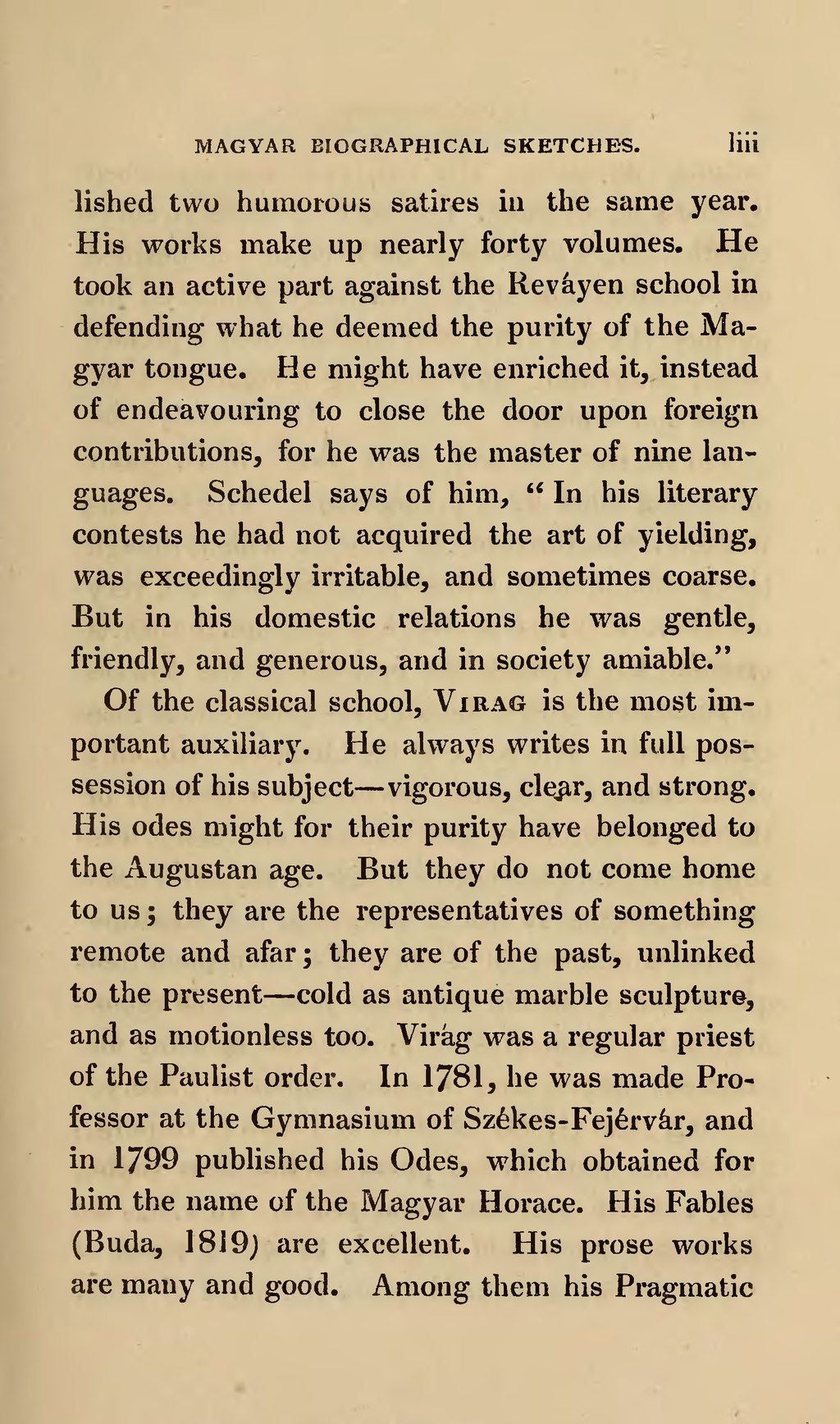lished two humorous satires in the same year. His works make up nearly forty volumes. He took an active part against the Revayen school in defending what he deemed the purity of the Magyar tongue. He might have enriched it, instead of endeavouring to close the door upon foreign contributions, for he was the master of nine languages. Schedel says of him, "In his literary contests he had not acquired the act of yielding, was exceedingly irritable, and sometimes coarse. But in his domestic relations he was gentle, friendly, and generous, and in society amiable."
Of the classical school, Virag is the most important auxiliary. He always writes in full possession of his subject—vigorous, clear, and strong. His odes might for their purity have belonged to the Augustan age. But they do not come home to us; they are the representatives of something remote and afar; they are of the past, unlinked to the present—cold as antique marble sculpture, and as motionless too. Virág was a regular priest of the Paulist order. In 1781, he was made Professor at the Gymnasium of Székes-Fejérvár, and in 1799 published his Odes, which obtained for him the name of the Magyar Horace. His Fables (Buda, 1819) are excellent. His prose works are many and good. Among them his Pragmatic
